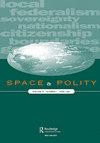通往更具政策参与性的地理的途径
IF 1.1
Q2 GEOGRAPHY
引用次数: 2
摘要
地理学家有责任通过参与和制定政策来解决我们这个时代的主要挑战。本文介绍了实现这一目标的三种途径——通过对政策的批判性参与;通过占据促进议程设置的有限空间;并通过授权他人自下而上地制定政策。借鉴与城市和区域发展相关的一系列经验,讨论了参与政策世界的挑战和机遇。论文最后呼吁努力建立一种可能性地理,使我们的学科被认为是解决社会、经济和环境挑战的关键。本文章由计算机程序翻译,如有差异,请以英文原文为准。
Pathways to a more policy-engaged geography
ABSTRACT Geographers have a responsibility to address the major challenges of our time by engaging with and shaping policy. The paper introduces three ways this might be achieved – through critical engagement with policy; through occupying liminal spaces that foster agenda setting; and through empowering others to shape policy-from-below. Drawing on a range of experiences related to urban and regional development, the challenges and opportunities of engaging with the policy world are discussed. The paper concludes with a call to strive for a geography of possibility where our discipline is recognized as critical to solving social, economic and environmental challenges.
求助全文
通过发布文献求助,成功后即可免费获取论文全文。
去求助
来源期刊

SPACE AND POLITY
GEOGRAPHY-
CiteScore
4.10
自引率
4.20%
发文量
19
期刊介绍:
Space & Polity is a fully refereed scholarly international journal devoted to the theoretical and empirical understanding of the changing relationships between the state, and regional and local forms of governance. The journal provides a forum aimed particularly at bringing together social scientists currently working in a variety of disciplines, including geography, political science, sociology, economics, anthropology and development studies and who have a common interest in the relationships between space, place and politics in less developed as well as the advanced economies.
 求助内容:
求助内容: 应助结果提醒方式:
应助结果提醒方式:


